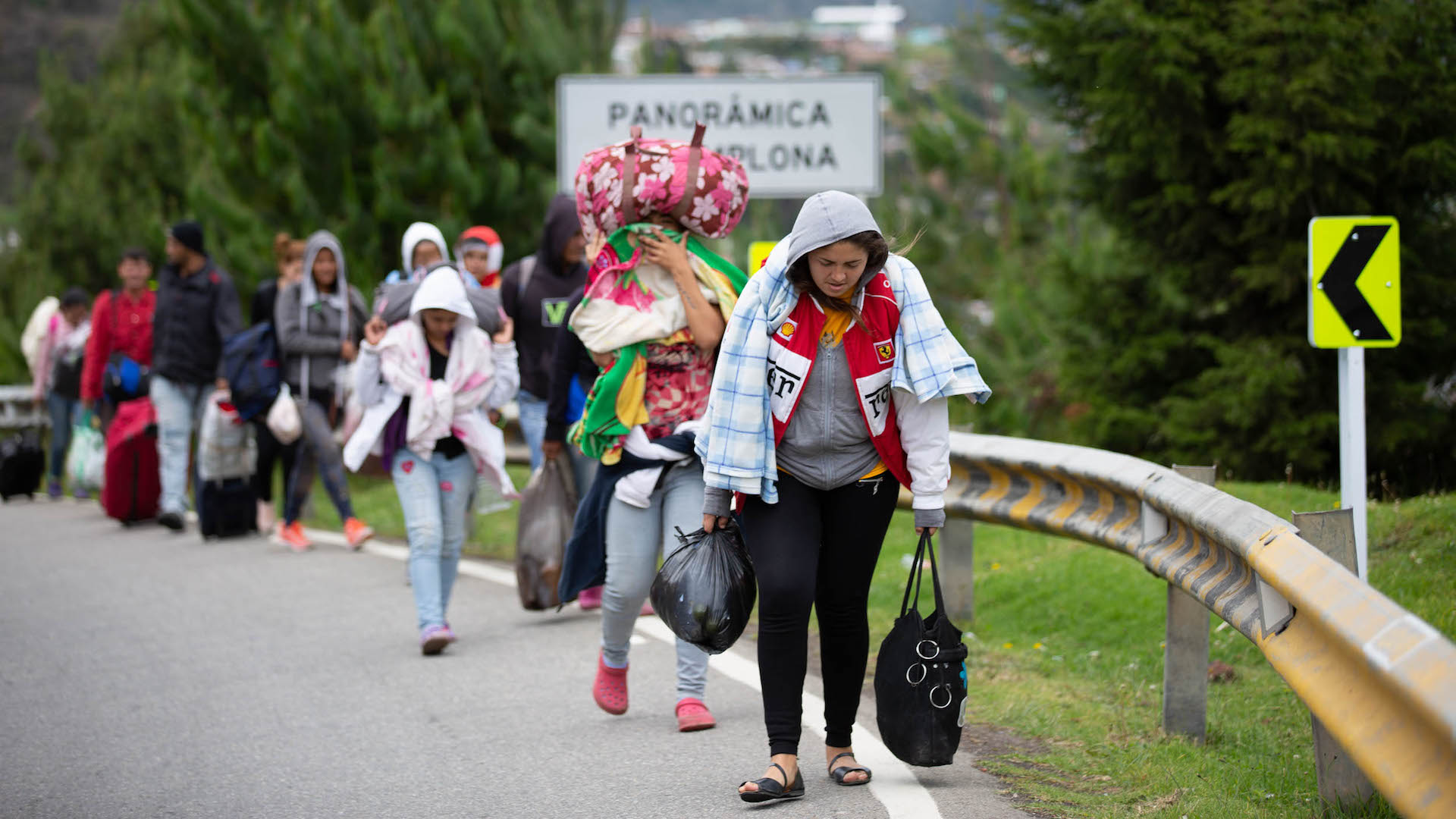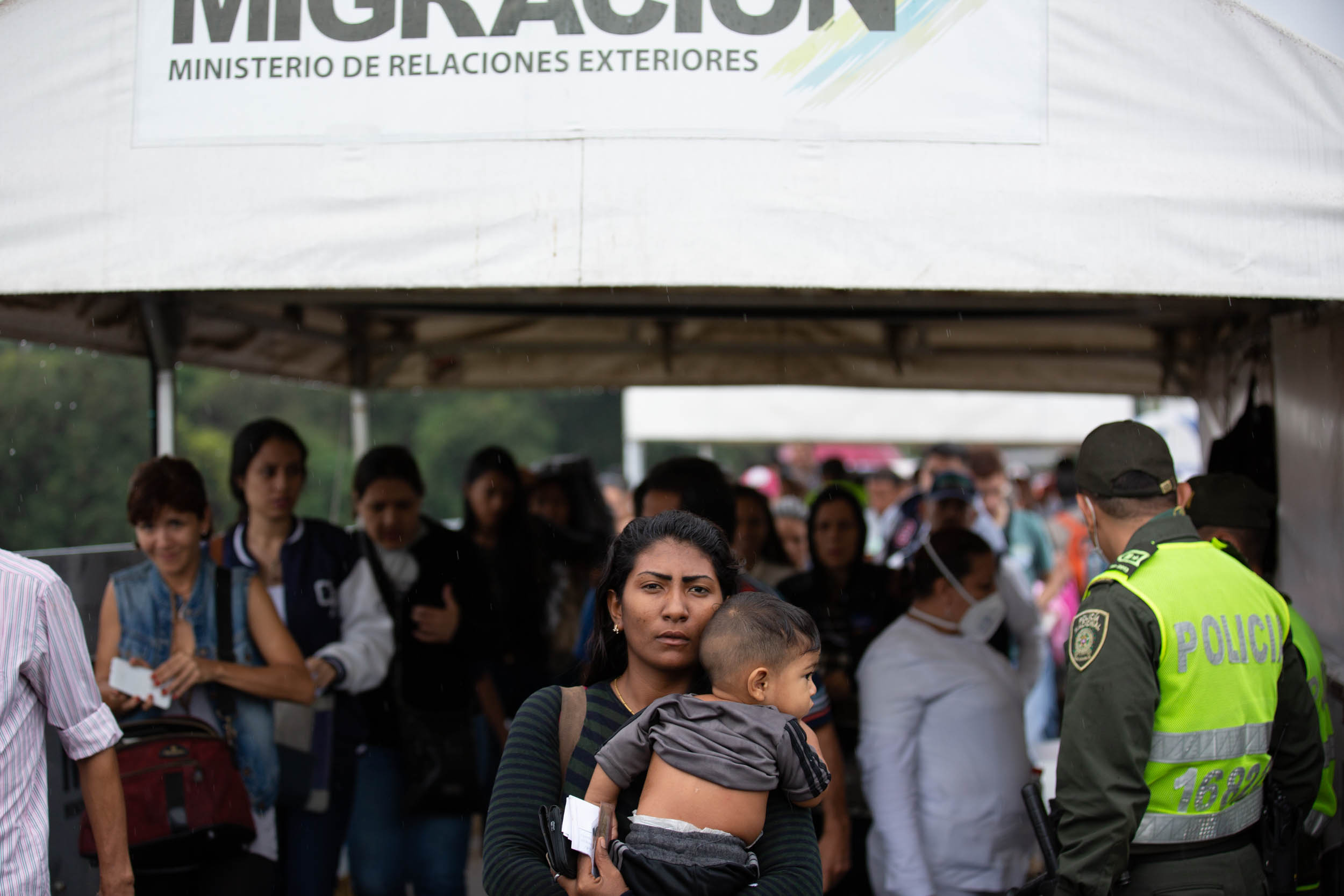What Is Happening?
Public transportation has ground to a halt. Store shelves are empty. Hospitals no longer treat the sick but simply bed the near-dying. Cash has all but disappeared—the paper used to make it is more valuable than the funds it represents. Classrooms are empty. Bellies are never full.
This is Venezuela, the once-prosperous vacation destination in South America, blessed with natural resources, Instagram-worthy beaches, and the world’s tallest waterfall.
But the economic and social collapse in Venezuela the past few years has decimated the wellbeing of the country and its citizens. Venezuelans have plunged into poverty, losing an average of twenty-four pounds last year because they only have enough for one meal a day. Children suffer from malnutrition, and nearly eradicated, treatable diseases such as malaria and typhoid are starting to spread again.
Theo and Monica Starr* lived and worked as IMB missionaries in Venezuela for twenty-seven years. They were forced to leave several years ago and have recently relocated to Colombia. Theo just returned from a visit to Venezuela to encourage and support local believers and was amazed at the decline in the few months since his last visit. “The situation is really desperate,” he said. “If you stay, you die.”

Photo by James Nwobu
Many Venezuelans choose life over home by literally walking away from all they’ve ever known and loved. Conservative estimates report that more than one million Venezuelans have left the country in the past two years, with three thousand a day seeking refuge in Venezuela’s neighboring country, Colombia. In 2017, they were also the top asylum seekers in the US.
Why Is This Happening?
Former Venezuelan President Hugo Chavez came to power in 1999, campaigning on the socialist promises of a Bolivarian Revolution. He ushered in what has been called twenty-first-century socialism, styled after Cuba and China. He consolidated power and became the autonomous dictator, leading his country into hyperinflation, ravaging the country’s natural resources, and leaving most citizens with no hope for the future.
The empire of Hugo Chavez has been described as not only corrupt but evil. Even though it’s been five years since his death, his legacy casts an even greater shadow than his life. His handpicked successor, Nicolas Maduro, Venezuela’s current president, has perpetuated Chavez’s renown by styling him into an immortal figure.
Maduro created a cult that glorifies the “eternal commander,” making Chavez’s burial place a center of worship and prayer to Chavez. In some churches, the Lord’s Prayer has even been changed to say, “Our Chavez, who art in heaven.” Maduro proudly claims that he communes with Chavez, and he reportedly hosts rituals and sacrifices at the presidential palace in Chavez’s honor.
Monica calls it “an evil, lawless society,” and Venezuelan Christians feel the situation is one of biblical proportion. “Psalm 126 is a reality for us,” said a Venezuelan church planter. “Venezuela is under captivity by an evil empire.” There is incredible materialism, actual idol worship, spiritism, and witchcraft taking place by government officials.
What Is God Doing?
Many Christians forced to leave the country believe the decline of their country is God’s judgment on the spiritual depravity. Although they weep for their country as prophets wept for Israel, Venezuelan Christians also see how God is working in the crisis so people may know him. Just as Israel was refined, tested, and purified under captivity, so there are signs of the same thing happening in the Venezuelan church.
“When New Tribes missionaries were kicked out of the Venezuelan jungles in 2005, the local church’s response was an awakening of missionary fervor.”
To the human eye, Venezuela’s social and economic situation seemed to plunge into a sudden free fall three years ago, but God knew what was coming and was already preparing the church. Church attendance and the number of new Christians have been steadily increasing since 2000. When New Tribes missionaries were kicked out of the Venezuelan jungles in 2005, the local church’s response was an awakening of missionary fervor.
“It was a turning point,” said Theo. “It sparked a reaction by the Venezuelan church. They said, ‘Okay, the North American missionaries have been thrown out, but they can’t throw us out!’ and they began developing discipleship programs with a DNA of missions and church planting.”
What had been a trickle of interest became a flood, and hundreds began to commit their lives to taking the gospel to the far reaches of the globe. IMB leadership was in place in Venezuelan seminaries and churches at that time to help train and develop leadership, tasks the Venezuelan church now nearly owns as it reaches people inside and outside the country’s border.
Even though Christians are among the many who are leaving the country, their numbers are replaced by new believers very quickly. “Thirty percent of a church leaves, and within six months they have the same number of people,” Theo said. Since 2005, more than four hundred churches have been planted in Venezuela.
What Can We Do?
Although this crisis doesn’t regularly make headlines in America right now, the reality is that it is the largest rapid displacement of people in the Americas ever witnessed, and as big as the Syrian refugee crisis in 2015. Sending help has proven difficult. Large humanitarian operations have been barred from entering the country because the Venezuelan government won’t allow outside aid and refuses to acknowledge that there is a crisis. The help that comes will have to be through individuals and ministries dedicated to helping quietly.
The Starrs and a team of coworkers labor in Colombia and daily organize help through contacts in Venezuelan churches. They source medicines and foods to send over the border, facilitate projects to get parcels delivered to individuals in-country, are bringing Venezuelan believers out for rest, training, and support.
The Starrs network to make needs known, figuring out the best ways to help—feeding programs, medical clinics, missions conferences, discipleship training, trauma training, and small business start-ups both inside and outside the country through local contacts.
They started the RaVenz Project so people who want to help can purchase small amounts of groceries and have them delivered in-country to individual homes. Through this project, the Starrs have figured out how to purchase food and other supplies in USD so the hyperinflation doesn’t affect the buying power. With inflation predicted to top one million percent by year’s end, this has been pivotal.
The Starrs and their team have also partnered with Baptist Global Response to begin several projects, such as feeding the hungry. You can also email the Starrs directly to ask how you can support farming projects, Venezuelan refugees, and Venezuelan kids or seminary students.
But even more important than the practical help is the knowledge that we, the church, know about the crisis and stand alongside Venezuelans. “They have told me that even more important than the food or the money, is that we don’t forget them,” Monica said.

Photo by James Nwobu
*Name changed
Karen Pearce is a writer for IMB living in Prague. She has dedicated much of the past three years to researching and writing about the global refugee situation. You can follow her @KarPea4.
Video by Andrew Rivers, who lives with his wife in Southeast Asia.